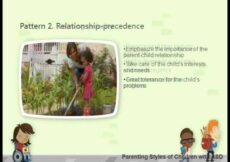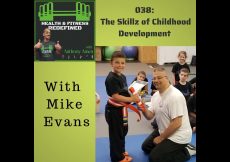As parents, we often marvel at the unique ways our children express themselves, grow, and navigate the world. Some children may exhibit specific traits or behaviors that indicate a high potential for intellectual giftedness, also known as High Intellectual Potential (HPI, or “Haut Potentiel Intellectuel” in French). Recognizing these signs early can help parents provide the right support and encouragement. Today, as a sophrologist, I’d like to share three key phrases that could indicate your child might be HPI.
But before we dive in, let’s address an important point: every child has their own form of brilliance. Whether your child’s strengths lie in creativity, emotional intelligence, practical problem-solving, or traditional academics, they have incredible potential. Recognizing HPI traits is not about creating a hierarchy but about understanding and nurturing individual needs.
My eldest son started speaking at 9 months, which was exceptional. By the time he was one year old, he was stringing words together, and when I traveled with him to Crete for his second birthday, he was already using all the tenses, even the subjunctive, which is quite complex in French. Around the age of 3, he would correct his father and me when, caught up in the excitement of shopping, for example, we made what he considered “poor” sentences.
At 4 years old, he asked us for a globe that doubled as a lamp, and after locating all the continents, he started sleeping with it to “review at night.” The day we took him to Sunday school, he must have been about 4 and a half, he corrected the pastor by saying that “God” should rather be called “The Almighty” and stumped him with a question: “If God created the world, then who created God?”
At 5, my mother taught him to read in just two months over the summer, and he has always excelled in class while seemingly putting in very little effort. Things became more challenging when he transitioned from a small school, where he was appreciated and valued by his teachers, to a large institution where the teachers were less engaged—apart from two who were incredible!
Currently, in higher education with smaller class sizes, he is once again excelling but plans to switch to medical school in a few months, feeling more suited to longer studies.
You see, it seems easy at first glance to identify a child with high potential, but it’s not always the case. Imagine if we had worked more and spent less time at home or cultivated him intellectually to a lesser degree—we might have overlooked his abilities.
Phrase 1: “Why is it like that?”
Gifted children often exhibit a deep curiosity about the world. They’re not content with surface-level explanations and frequently ask “why” questions that go beyond their years. If your child asks questions like “Why does gravity work?” or “Why do people feel emotions?” they might be exploring abstract concepts that fascinate them.
Sophrologist Tip: Encourage their curiosity by engaging in thoughtful conversations or exploring answers together. This nurtures their intellectual development while strengthening your bond.
Phrase 2: “That’s not fair!”
HPI children often have a heightened sense of justice and fairness, which can manifest in their daily interactions. If your child frequently points out discrepancies, stands up for others, or challenges rules they perceive as unjust, it could be a sign of advanced emotional and moral reasoning.
Sophrologist Tip: Validate their feelings and teach them to navigate situations constructively. Empathy and perspective-taking are essential skills that complement their strong sense of fairness.
Phrase 3: “I’m bored.”
While every child experiences boredom, HPI children may feel this more acutely, especially in environments that don’t stimulate their minds. If your child frequently says they’re bored despite having access to various activities, they might need more complex challenges to stay engaged.
Sophrologist Tip: Offer opportunities for them to delve deeper into their interests, whether it’s through puzzles, creative projects, or extracurricular activities. Balancing stimulation with downtime is key to their well-being.
Embracing All Forms of Intelligence
It’s crucial to remember that intelligence takes many forms. While some children might excel in logical reasoning or verbal skills, others shine through creativity, practical problem-solving, or emotional insight. For instance, a child who navigates social situations with ease and demonstrates exceptional common sense is just as gifted in their own way.
As parents, we should celebrate our children’s unique strengths, whatever they may be. Whether your child fits the HPI profile or not, the most important thing is to provide them with love, support, and opportunities to grow into their best selves.
The Role of Sophrology in Supporting Your Child
Sophrology, a practice that combines relaxation, breathing, and mindfulness techniques, can be a wonderful tool for all children. For HPI children, it can help them manage their intense emotions and focus their energy. For others, it’s an excellent way to build self-confidence, reduce anxiety, and enhance overall well-being.
Final Thoughts
Every child is a treasure, with their own path to follow. By recognizing and nurturing their individual strengths, we can help them flourish in a world that needs all kinds of talents. If you suspect your child might be HPI, or if you’re simply looking for ways to support their development, remember that curiosity, fairness, and boredom can all be opportunities for growth. And for parents seeking additional tools, sophrology might be just what you need to guide your child on their unique journey.


































